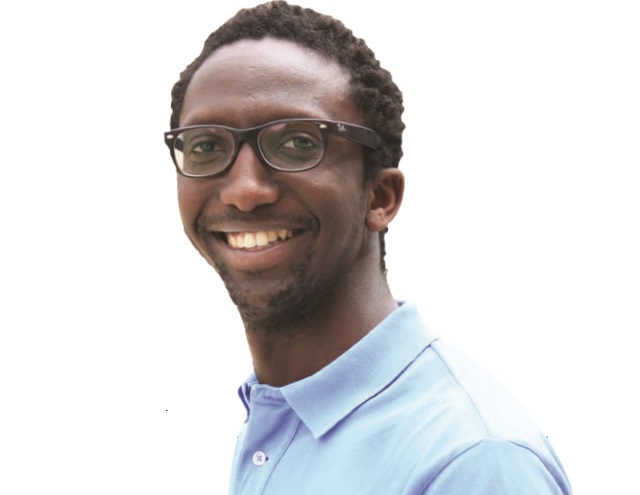
The party of Frances new president unveils a Rwandan-born economist as candidate in polls
French president-elect Emmanuel Macron’s party on May 11 unveiled more than 400 candidates who will stand in parliamentary elections in June, with half of them newcomers to politics and half of them women.
It includes Herve Berville, aged 27, a Rwandan-born economist adopted at the age of four in 1994 by a French family in Cote d’Armor, Brittany, the constituency where he will stand.
He embodies “the renewal” desired by Macron. A graduate of Science-Po Lille and the London School of Economics, he worked for the French Development Agency in Mozambique and then as a researcher at Stanford University in California.
Pro-Europe centrist Macron, 39, was elected on Sunday after promising a “revolution” that would bring fresh faces into France’s stale political landscape and end the pattern of power alternating between traditional parties.
His newly renamed grassroots movement, La Republique en Marche (Republic on the Move), founded only 13 months ago, revealed 428 out of 577 candidates for the parliamentary polls.
“We aim to build a majority for change and to win an absolute majority in parliament,” party secretary general Richard Ferrand told a news conference.
Macron had promised that half would be newcomers, meaning a diverse range of figures from business, public service, activist groups and academia will get a chance to seek elected office.
“The promise of renewal is fulfilled,” Ferrand said, adding that the average age of the candidates was 46 — compared with 60 in the current national assembly.
On the tricky position of whether to accept former Socialist prime minister Manuel Valls, Ferrand said the party had not selected him, but would not field a rival against him in his south of Paris seat.
Valls, a friend-turned-foe of Macron’s from their time in government from 2014-2016, had asked to be selected on Tuesday, but said he welcomed news that Macron’s movement would not oppose him.
“So it will be as a free man, yet with a strong political identity … republican, progressive, of the left, that I act,” said the former premier, urging people “who want the new president of the republic to succeed” to vote for him.
Other successful bids came from a woman fighter pilot who will run in eastern France and a man born in Rwanda who was adopted in France at the age of four and will contest a seat in Brittany.
– Appeal to the right –
The nomination process is a balancing act for Macron and represents major risks for his presidency, which began formally on Sunday May 14 when he took over from Socialist Francois Hollande.
Without his own parliamentary majority, Macron could find it hard to push through his planned reforms of the labour market, pensions, unemployment benefits or education.
Many of his newcomers will also face seasoned politicians with long careers and local networks of activists and supporters.
And there is also the risk of scandal if anyone with a chequered history slips through the vetting process of the more than 19,000 applications sent online since January.
Ferrand said each candidate had been interviewed and had declared not to have a criminal record or to have been disqualified for any function in the past.
“Our movement has done everything possible to make sure that the candidates chosen respect our values,” he added.
The president-elect is a left-leaning liberal and was a senior adviser to Hollande before being named economy minister during the latter’s unpopular term.
But from the list are 214 candidates who are already politicians, including familiar faces from the Socialist Party and from the centrist MoDem party, headed by Macron ally Francois Bayrou.
There are none, however, from the rightwing Republicans party, according to its secretary general Bernard Accoyer, but Ferrand left the door ajar for some of them to join in the next week.
Some 148 constituencies — not including Valls’ area — remain open.
Macron, a former investment banker who has never held elected office, faced other tricky decisions in the week after his win.
The biggest among them was his choice for prime minister, who will head the government until at least the parliamentary elections on June 11 and 18 and perhaps beyond.
Macron on May 15 picked Edouard Philippe, a 46-year-old centre-right French politician and lawyer, as prime minister.
Upon taking over his official duties from Bernard Cazeneuve, the outgoing prime minister, Philippe said he is principally “rightwing, and yet the general interest must dictate the engagement of the state, of elected officials and of the citizen”.
Philippe has been a member of the Union for a Popular Movement and later the Republicans. He has also served as a member of the National Assembly.
He is mayor of the northern port of Le Havre and an MP for the region since 2012 who studied at the same universities as Macron and shares many of his views on the economy and social issues.
The choice sent a strong signal about Macron’s intentions, and he had promised to pick someone with past experience of parliament and capable of managing a majority. But it dashed his declared preference is for a woman.
The political consequences of Macron’s victory are still being felt, with the Socialists fighting for relevance and the Republicans eager to become the main political force in parliament after the June elections
****
-AFP
 The Independent Uganda: You get the Truth we Pay the Price
The Independent Uganda: You get the Truth we Pay the Price



